The Old Gods and the New
Hi Everyone,
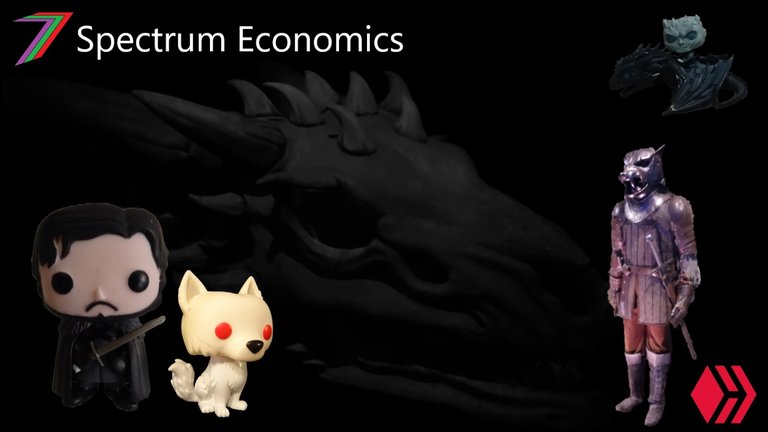
In this post, I want to explore how religion is used as a tool to control and influence human behaviour. I consider religion in both the past and present. The post does not focus on any particular religion but instead takes a general overview of religion as a whole. The post considers the different types of religion and where they are located in the world. It considers if the number of followers of religion (actual numbers as well as percentage of populations) is increasing or decreasing. The post considers how religion fits in with the ‘Establishment’ (Government, Media, Banks, Big business, Religion, etc.) and the goals of the Great Reset.
Religion begins

Religion has been around for thousands of years. It dates back to our earliest existence. Nonetheless, we do not know with any degree of confidence how religion began or how it became a fundamental part of human existence. Therefore, we can only vaguely hypothesize its possible origins and earliest development. A popular theory links religion to human intellectual and imaginative capacity.
Religion appears to be unique to humans. Therefore, the creation of religion could be a product of higher intelligence. Imagination and curiosity could have given rise to theories about how humans and the world around them came about. Over time, these theories could have evolved into basic religions. Leaders of that time would have had influence over what ideas and theories formed the basis of the religion. They most likely would have used religion to bring unity to their tribes or communities while also creating more power for themselves. This would be consistent with how religion has been used in recorded history. For example, Constantine (Emperor of the Roman Empire) converted to Christianity, thus, eventually, converting the Roman Empire to Christianity (Jewish History).
Polytheism to Monotheism
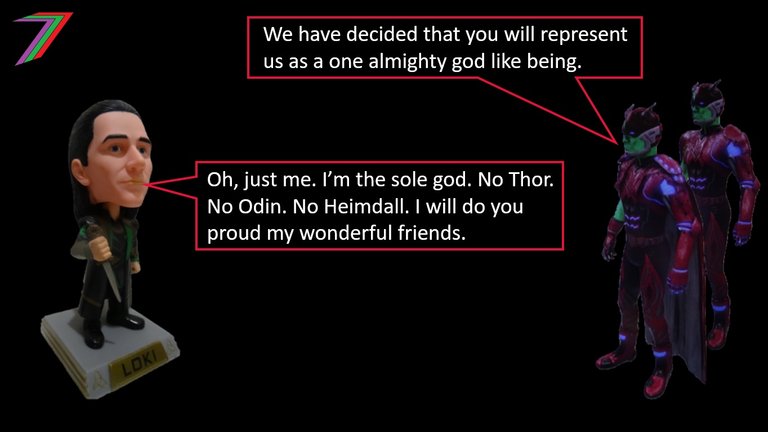
Animism is the belief that natural objects, natural phenomena, and the universe itself possess souls.
Polytheism is the doctrine of or belief in more than one god or in many gods.
Monotheism is the doctrine or belief that there is only one God.
Source: dictionary.com
Prior to the strong emergence of Christianity, brought about by Roman adoption, religions of the largest populations were polytheistic. People believed in multiple gods. We saw this with the Greek, Roman, Nordic, Mayan, and Egyptian people. Polytheism typically humanised the gods. Reasons for this are unknown. However, the human likeness of the gods elevated humans above animals, which unlikely existed with animism religions (appear to have existed before polytheism). This could have inspired the formation of hierarchies, which could have then been applied to humans. Create god in the image of man so that you can claim god created man in the image of god. Many of the rulers in these polytheistic territories and nations claimed to have been chosen or even descended directly from the gods.
Polytheism may not have strongly or consistently unified the people of these territories. People’s faith was divided between various gods for various reasons. It provided opportunities for opposing leaders to claim they had support from one of the gods. This could have been ideal for divide and conquer strategies when the world was smaller.
As the world grew, unity within a nation would become important. Monotheism is more likely to unite a nation than polytheism. This is because focus is placed on just one god (this may been the logic behind Constantine’s conversion to Christianity). A divide and conquer strategy is not simply about causing divide amongst the people. The strategy strongly involves uniting people behind something (an ideology, a person, a faith, a religion, a culture, etc.) while enabling other people to unite behind something else. Divide and conquer is more effective if the divide is between a few large groups than many small groups. Existing monotheism religions have grown very large (e.g. Christianity and Islam).
Born into a Religion

Most people are born into a particular religion. Many families choose to raise their children in the religion they follow. This can be done very strictly or reasonably casually. Children are often introduced to the religious institutions that their parents follow. The extent of exposure varies between religions, cultures, and parent’s attitudes towards their own religion. These factors influence the likelihood a person will remain with the religion they were born into. For example, people born into Islam are less likely to switch or drop their religious beliefs than people born into Christianity (World Atlas). According to a 2014 Pew Research Center study, 42% of US adults have assumed a different religion than they born into (Fact / Myth).
The freedom to change religion in countries such as the US has led to a rise in the number of people with no affiliation to a particular religion. Figure 1 contains the percentage increase in the number of people who are not affiliated to a religion in the US from 1972 to 2016.
Figure 1: Growth of the religiously unaffiliated in the USA (1972 to 2016)
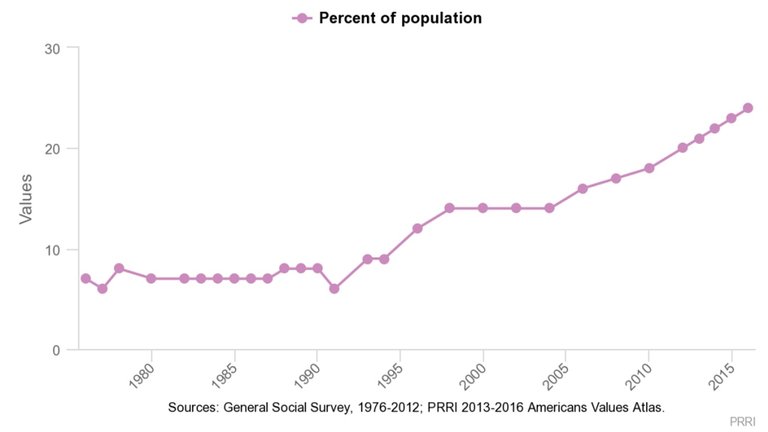
Source: PRRI
In many societies, people have some freedom to choose to remain with the religion they are born into, convert into another religion, or become non-religious. Despite this flexibility, on a world scale, most people follow a religion. Figure 2 contains the total number and percentage of people who follow major religions around the world.
Figure 2: People following major religions
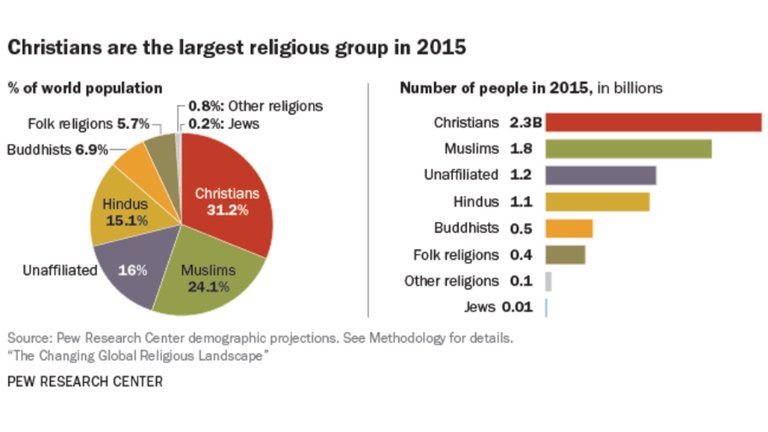
Source: Pew Research Center
According to 2015 data, more than 50% of the world’s population follow either Islam or Christianity. People with no affiliation to a religion (agnostics, atheists, and irreligion) make up only 16% of the world’s population. Most of those people are from China (approximately 50% of China’s population). Lack of affiliation to a religion is based on past and present restrictions on freedom of religion, which has been imposed on the people by their Governments and not through choice. However, the number of Buddhists are rising. From 1995 to 2015, the percentage of Buddhists has increased from 5% to 18% of China’s population (Sunday Guardian Live).
Global trends, based on birth and death rates, indicate that religious following is increasing rather than decreasing. Both the number of Christians and Muslims are increasing at a faster rate than the global population and the opposite is true of people not following a religion. See Figure 3.
Figure 3: Growth in Religion in different Regions
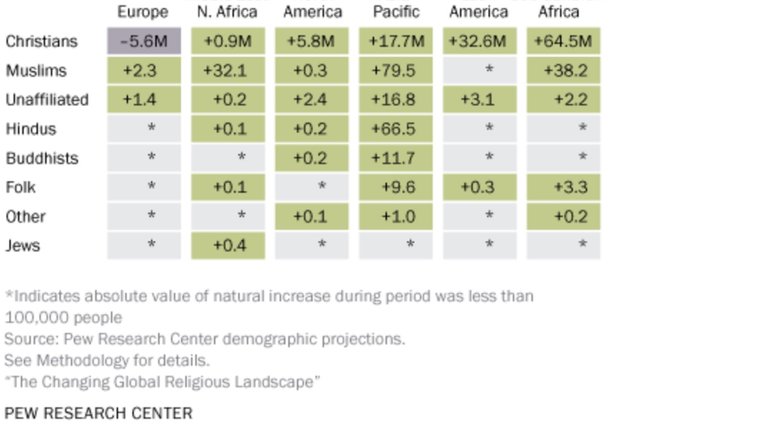
Source: Pew Research Center
The regions with the highest population growth rates are the regions with higher percentages of people who follow a religion.
Religion around the world
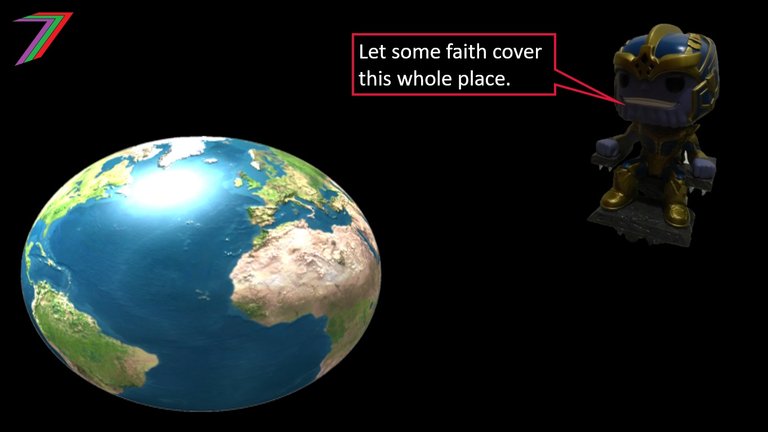
World maps can provide us with a better idea of the distribution of the world’s religions. Figure 4 contains a world map highlighting countries by their most dominant religious following.
Figure 4: Countries based on dominant religious following
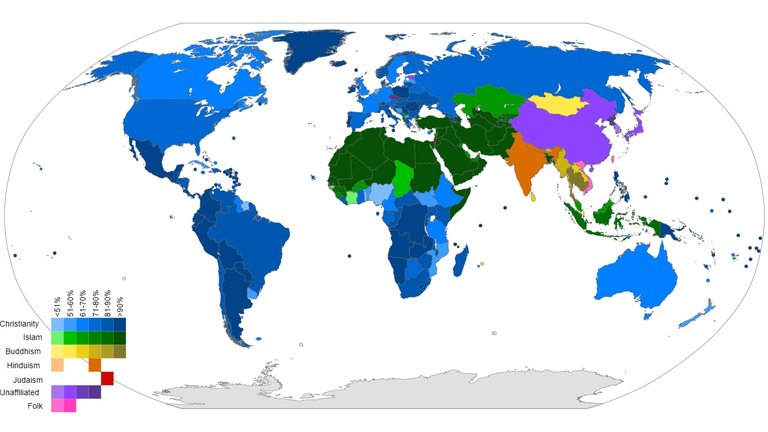
Source: Wikipedia
The maps can be divided further with a focus on just one religion at a time. Figures 5, 6, 7, 8, 9 and 10 contains maps for Christianity, Islam, Judaism, Hinduism, Buddhism, and unaffiliated to a religion respectively.
Figure 5: Countries with populations that follow a Christian religion
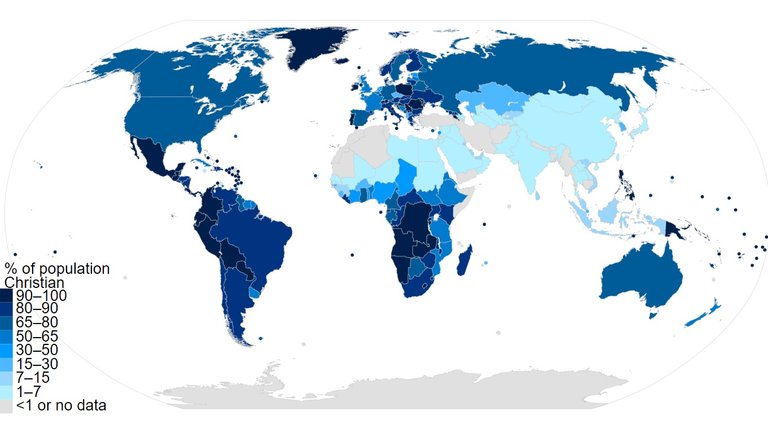
Figure 6: Countries with populations that follow an Islamic religion
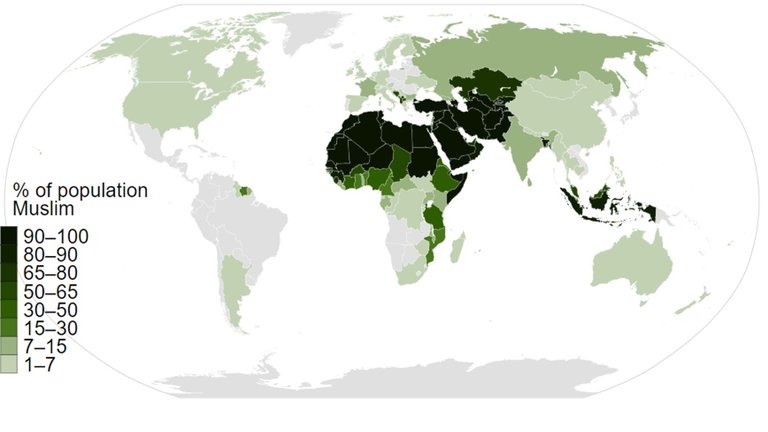
Figure 7: Countries with populations that follow Judaism as a religion
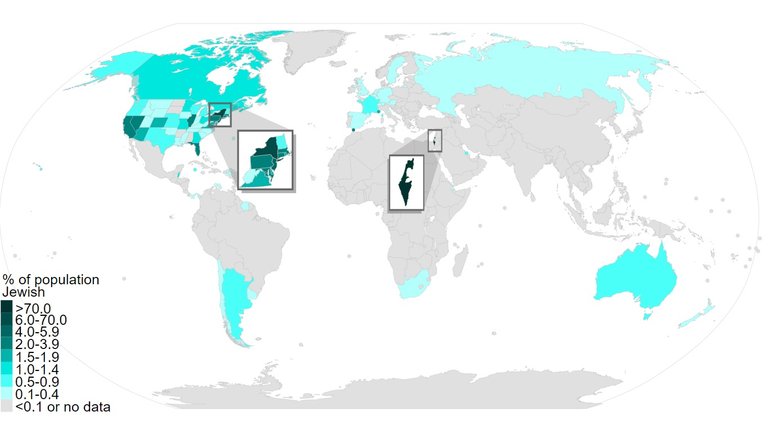
Figure 8: Countries with populations that follow Hinduism as a religion
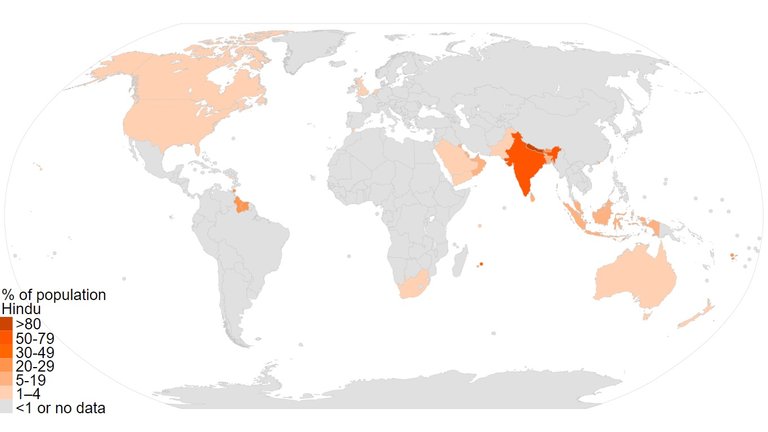
Figure 9: Countries with populations that follow Buddhism as a religion
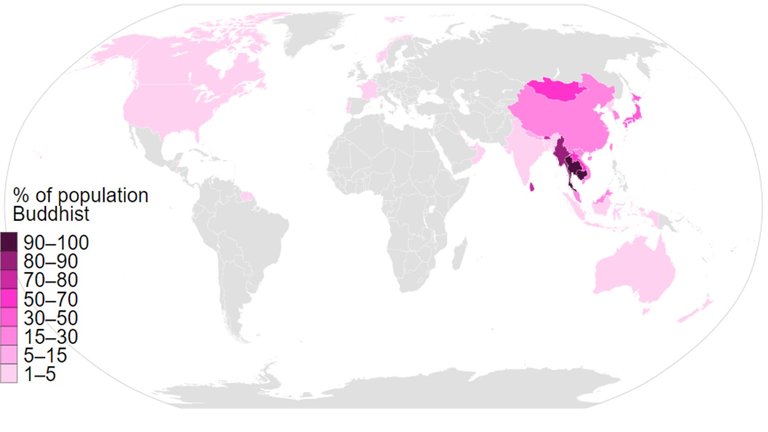
Figure 10: Countries with populations that are not affiliated to a religion
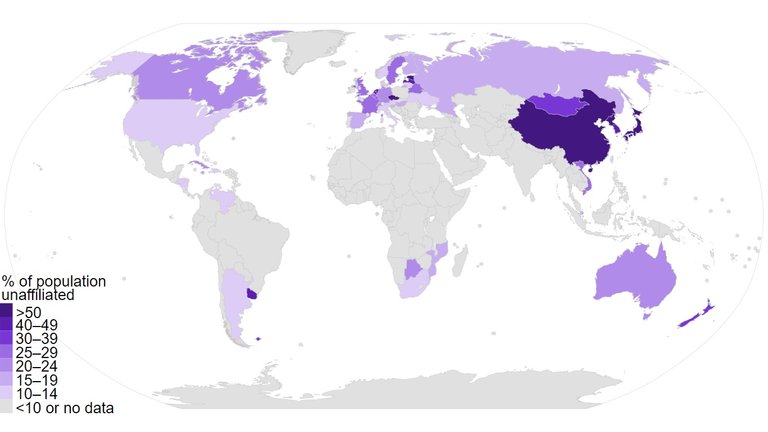
Source: Wikipedia
The Christian religions appear to be the most widespread group of religions. Other religions tend to be concentrated in just a few regions around the world (e.g. Islam concentrated in the Middle East, North Africa and Southeast Asia). Christianity is also widely divided between a few dominant dominations of the religion. Figures 11, 12 and 13 divide Christianity into Catholic, Protestant, and Eastern Orthodox respectively.
Figure 11: Countries with populations that follow Catholicism
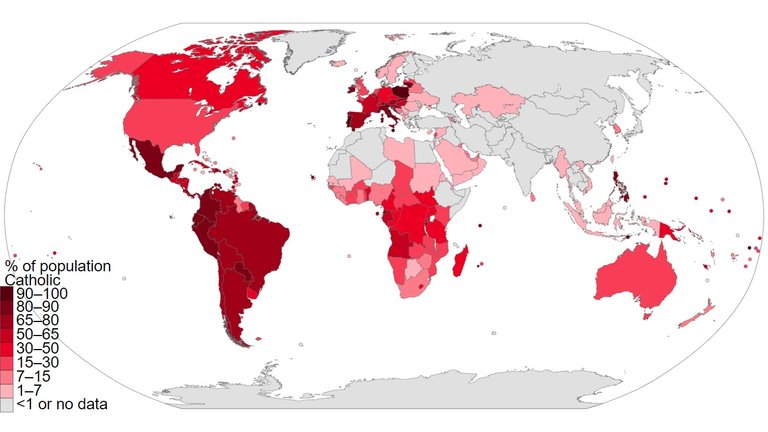
Figure 12: Countries with populations that follow Protestantism
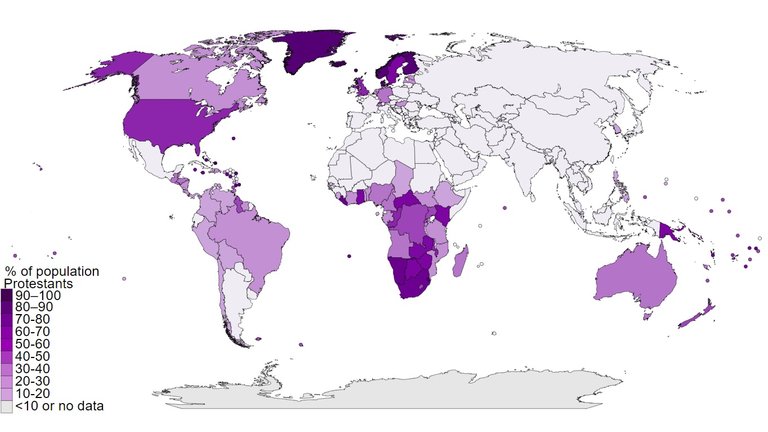
Figure 13: Countries with populations that follow Orthodoxism
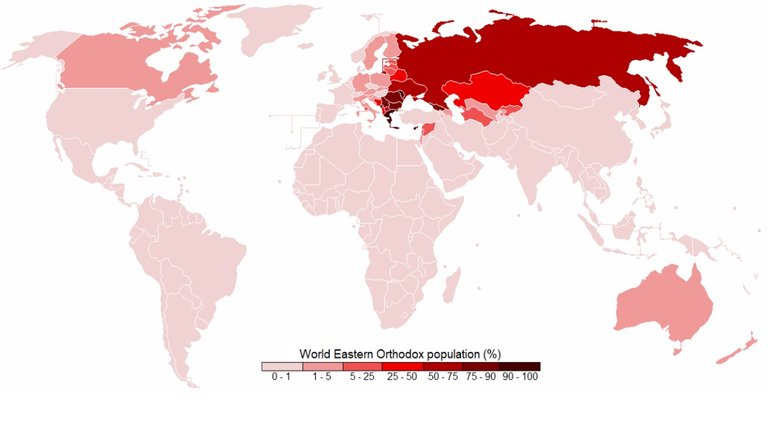
Source: Wikipedia
The dominations of Christianity are considerably less widespread than Christianity as a whole. Catholicism is concentrated in Central and South America, parts of Europe and Africa. Protestantism is concentrated in North America, Northern Europe, Southern African countries. Orthodoxism (most concentrated of the three) is concentrated in Eastern Europe.
Like Christianity, Islam has denominations. However, Islam is not as widely split in terms of numbers of people following different denominations. Approximately, 85% of Muslims identify as Sunni (History). Figure 14 contains the percentage of populations following a denomination of Islam.
Figure 14: Countries with populations that follow a denomination of an Islamic religion
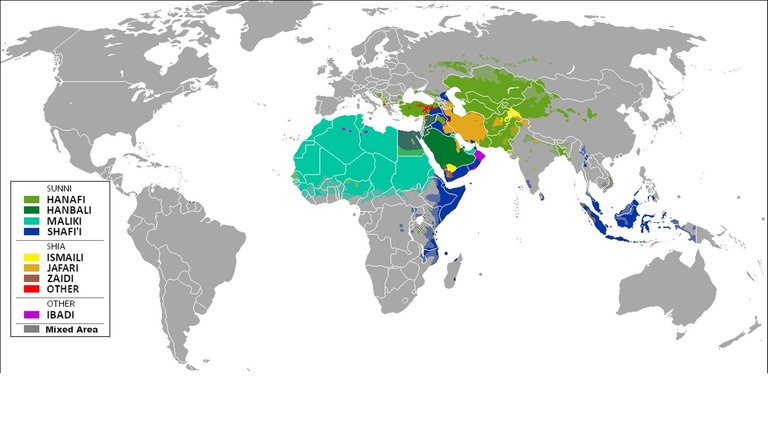
Source: Wikipedia
From the data, it is clear that religion plays an important role in a large majority of the world’s population. Despite that people in some western countries are moving away from religion, the number of people being born in countries with a high percentage of religious followers is sufficient to nullify that effect.
Why follow a religion?

There are many reasons why people follow a religion. These reasons and the strength of these reasons will depend on the religion itself as well as the culture around the religion. Below are a few possible reasons people may follow a religion.
- They truly believe in their religion and have no desire to leave it behind.
- They believe their religion offers them direction, guidance and purpose.
- They believe following a religion makes them a better person.
- They are pressured or forced to remain with a religion.
- They are attracted to a religion because of the supportive community that comes with it.
- They believe following a religion is beneficial for their children.
- They are afraid of dying and hope for an afterlife
- They desire communication with a higher force.
Religion meets several of our needs and wants that are not easily met through other means. Therefore, people will continue to turn to religion for as long as access to viable alternatives to religion are limited for most people.
Using religion to control others
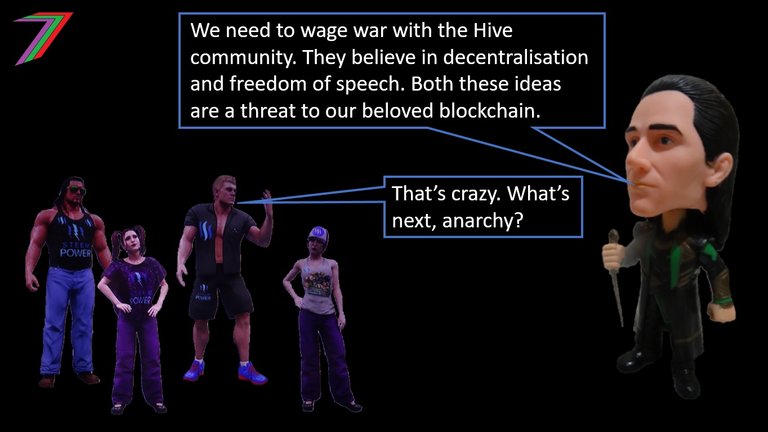
Trust in the Lord with all your heart and lean not on your own understanding; in all your ways submit to him and he will make your paths straight (Proverbs 3:5-6).
Religion has stood the test of time and it can be expected to remain with us for a very long time. Therefore, religion remains a reliable tool to use to manipulate and control people. The characteristics of most religions enables the control and manipulation of people. Many religions focus on obedience and the following of instruction based on scripture or the teachings of religious leaders. Many religions focus on reward (e.g. kingdom of heaven) and punishment (e.g. fires of hell) based on how well people follow a religion or submit to it. Most religions do not directly teach people to fear or hate people outside their religion but those outside their religion are implied (sometimes directly considered as) to be inferior as they do not follow the practices of their religion. People who are perceived as being inferior may also be perceived as a threat because they are perceived to lack morals and constraint.
Religious and political leaders have used the argument that people outside their religion are a threat as a mechanism to manipulate people to act against them. Ironically, the people labelled as the biggest threat are often those who follow a similar religion. We have seen this with the many wars between Catholics and Protestants (both Christian) and Sunnis and Shiites (both Muslim). The wars are rarely about religion. They are mostly about greed and power. However, many fighting in these wars believe they are about religion. For similar religions, the emphasis is placed on the differences and the potential ease of undesired assimilation into each other. The reasons for wars between similar religions is more likely linked to their close geographical proximities. See Figures 12 and 13 for the proximity of Christian religions in Europe and Figure 14 for the proximity of Islamic religions in the Middle East and Africa. Leaders of wealthier western nations are aware of the potential volatility regarding religion. Therefore, they intervene when it is profitable to destabilise these regions.
People who follow their religion most closely are easiest to control. They are also the most likely to progress through their religious hierarchy. They will remain obedient to those above them but are also most likely to demand obedience of those below them. Religions form systems that reinforces themselves as the people within it regulate and control each other by following the ideals of their faith. The extent this happens depends greatly on the religion and how it is pursued or enforced by cultural beliefs.
Even for countries where many people have moved away from religion, religion is still used as a method of manipulation. Non-religious beliefs are being treated as “progressive”. People are told to believe in science. However, the science presented is whatever the mainstream media and their selected experts claim it to be. Religion is argued to be blocking “progressive” thought. For example, pro-life (e.g. anti-abortion) movement is often labelled as “regressive” because it is claimed to be based purely on religious belief. Religious belief is also blamed for various forms of discrimination such as racism, sexism, and homophobia. This creates a divide between the more religious regions in a country. This can be seen in the US amongst ‘White’ people. The religious divide between Republican (mostly Christian) voters and Democratic (other religions and minority races) voters appears to be continuously widening (PRRI). Figure 15 contains the breakdown of voters based on religion and race.
Figure 15: Party Affiliation by Religious Affiliation
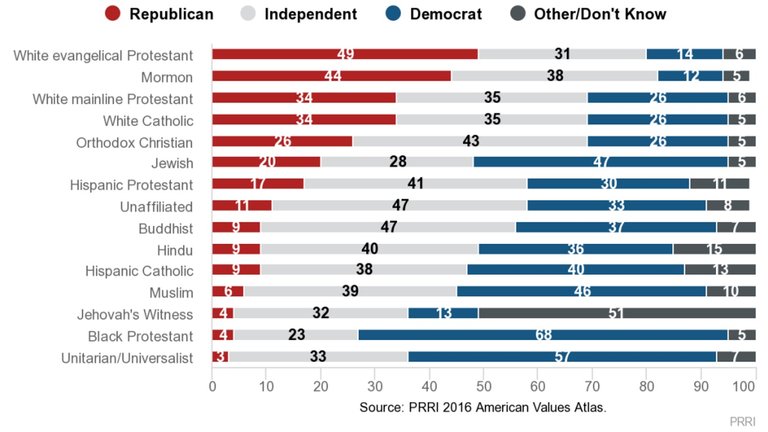
Source: PRRI
Religion as part of the Bigger Picture
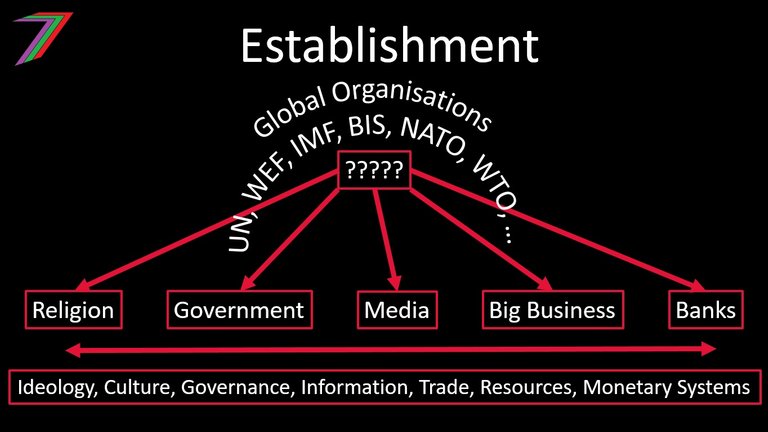
Religion along with Government, Big Business, Banks, and Mainstream Media form a central part of the global establishment. Combined they are used to control ideology, culture, governance, trade, resources, monetary systems, and information. Religion can influence all of the above but it consistently shapes ideology and culture across most countries. This moulds people into becoming more accepting of the other groups within the establishment.
The establishment extends beyond national bodies and borders. Most countries are tied together through international bodies that provide governance and guidance relating to military defence, poverty, health, international trade, environment, international laws, global financial system/s, and many other areas. The World Economic Forum are strongly advocating for greater centralisation of control and power in these international organisations. For example, a treaty is being proposed to give the World Health Organisation (WHO) more global authority on responses to pandemics for their member nations (Rebel News).
The World Economic Forum considers religion to have an important role for achieving many of the objectives of the Great Reset. They believe religious institutions can play a role in governance, shaping ideology, and distributing resources. Figure 16 contains a brief description of the proposed roles of religion and how it integrates into the World Economic Forum’s Great Reset objectives.
Figure 16: Role of Religion according to the World Economic Forum
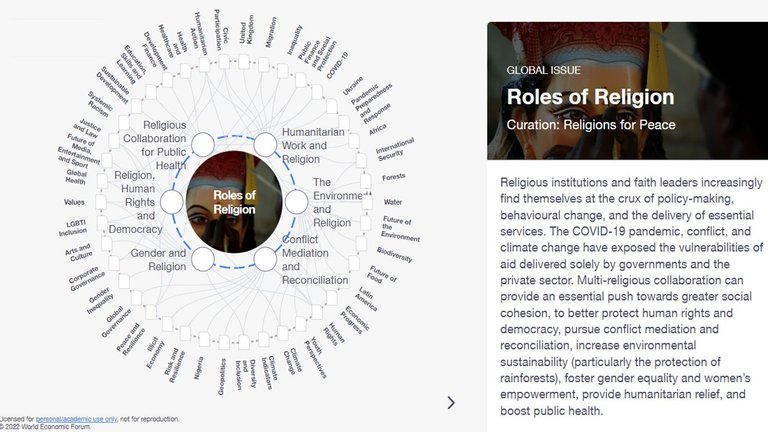
Source: World Economic Forum
In my three part series, ‘Covid-19 Assault: Have the Establishment made the Right Moves?’, I discuss how the establishment have used Covid-19 to manipulate people to gain both power and wealth. This series of posts will add more context to my brief discussion of the establishment in this post.
My Opinions
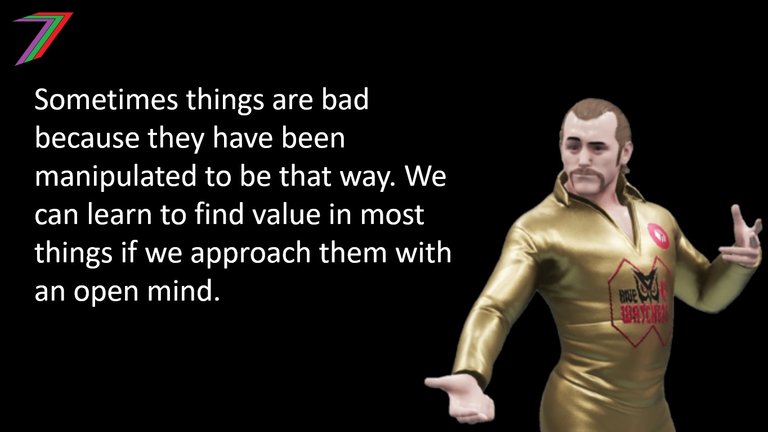
The primary purpose of religion is to control and/or manipulate people. It has an incredibly successful track record for convincing people to behaviour in particular ways. This could involve persuading or coercing people to be subservient to their supposed betters or even aggressive and violent to people they have been told are a threat to them simply because they have a different belief system. It might appear religion is losing its influence as people are turning away from it in some western countries. This is unlikely to be the case, high birth rates amongst the more religious populations, means that a high percentage of the world still follows a religion. Islam is the second most popular religion in the world and the number of followers are growing rapidly. The nature of Islam and the cultures that surround it, results in very few people leaving the religion.
Even though religion is used to manipulate and control people, in themselves, religions are not fundamentally bad. They encourage people to work together and help each other in times of need. They offer comfort in times of loss. They can offer a moral framework we can follow. However, many of them have struggled to evolve. They become cemented in a particular way where changes can only be peripheral. The lack of flexibility is partly because of their history as well as religious leaders' lack of desire to make changes. A possible excuse could be that if god’s word was divine then, it should therefore remain divine now. I believe everything changes, religion needs to change as well to remain relevant and useful. To benefit from religion we need to approach it with an open mind.
More posts

If you want to read any of my other posts, you can click on the links below. These links will lead you to posts containing my collection of works. These 'Collection of Works' posts have been updated to contain links to the Hive versions of my posts.
Hive: Future of Social Media

Spectrumecons on the Hive blockchain





This post has been manually curated by @steemflow from Indiaunited community. Join us on our Discord Server.
Do you know that you can earn a passive income by delegating to @indiaunited. We share 100 % of the curation rewards with the delegators.
Here are some handy links for delegations: 100HP, 250HP, 500HP, 1000HP.
Read our latest announcement post to get more information.
Please contribute to the community by upvoting this comment and posts made by @indiaunited.
We have experienced this here several years ago in a regional leadership election, where the issue raised was religion.
The excesses of the issues they raised are still very much felt to this day even though the political conditions here are now much better and more conducive.
However, its impact is still felt to this day. I just hope that in the future politicians don't put sensitive issues like religion into their selling points.
Thanks @adie44. From what I have experienced, religion has been used as more of background or underlying support for policy rather than the focus of policy. I guess politicians will push whatever they feel gives them the strongest reaction.
Congratulations @spectrumecons! You have completed the following achievement on the Hive blockchain and have been rewarded with new badge(s):
Your next payout target is 52000 HP.
The unit is Hive Power equivalent because post and comment rewards can be split into HP and HBD
You can view your badges on your board and compare yourself to others in the Ranking
If you no longer want to receive notifications, reply to this comment with the word
STOPTo support your work, I also upvoted your post!
Check out the last post from @hivebuzz:
One of the reasons why religion is used to control people is that people always mistakes religion for spiritualism, which is a really different context entirely. I was brought up as a Christian, still a Christian, but it has in no way shifted me away from the right decisions that might impact my life the way it should. Religion is probably a way through which men tries to attain or quell their curiosity about the metaphysical and unexplainable aspect of life. So the truth is, the diversity in the approach of people and the lives they live often influence they religion they tend to tilt to. But is it true that religion is used to control? Absolutely true without a doubt. This is because of how people are uninformed, uneducated and dogmatic when it comes to religion. I might totally be wrong in my convictions but I feel that in the quest to know God, people tap into religious belief as the pathway.
This is a nice thoughtful piece. How have you been doing?
@tipu curate
Upvoted 👌 (Mana: 35/45) Liquid rewards.
The influence of religion is so powerful because it deals with issues relating to the unknown such as the afterlife. It is also powerful because most people have been brought up with the idea of a powerful god their whole life. People become afraid to disobey their religious leaders because they are scared what they say is true even if it appears illogical. The apparent cost may seem too high to risk disobedience.
Well, I do believe in an all-powerful God, nevertheless, it's a personal conviction one that isn't tied to religion whatsoever. Religious leaders however, holds high esteem in the society and their impact is often too sovereign.